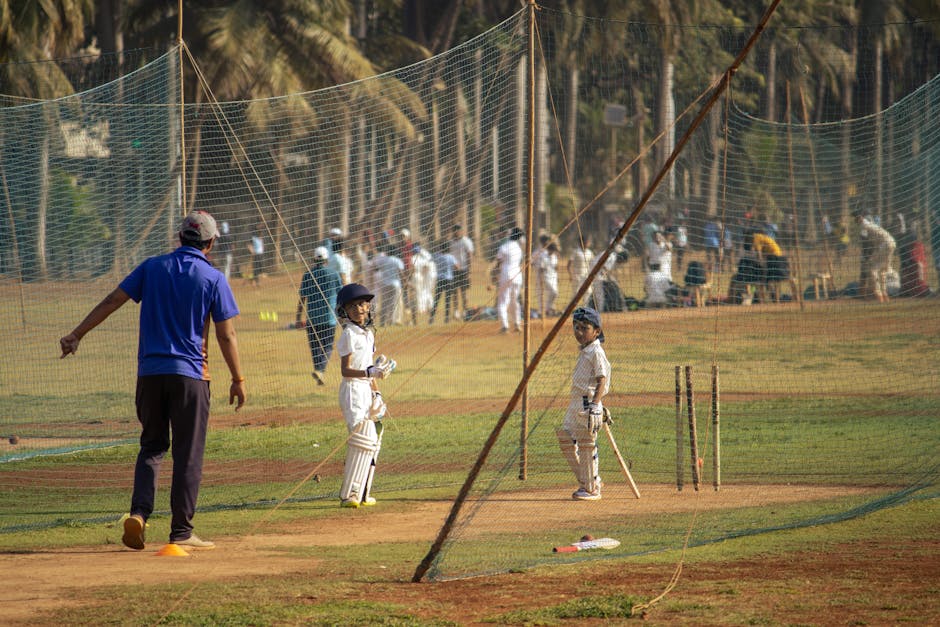Athletic development transcends mere physical prowess; it encompasses a multifaceted journey demanding meticulous guidance and strategic support. This journey finds its compass in the role of coaching, a dynamic process extending far beyond tactical instruction and drills. Effective coaching serves as a catalyst for holistic athlete development, impacting physical capabilities, psychological resilience, and cognitive strategies, ultimately shaping not just an athlete’s performance but also their character.
A cornerstone of effective coaching lies in individualized training programs. Recognizing that athletes possess unique strengths, weaknesses, learning styles, and aspirations is paramount. A “one-size-fits-all” approach proves detrimental, hindering progress and potentially fostering frustration. Instead, skilled coaches conduct thorough assessments, identifying an athlete’s baseline fitness, technical proficiency, and psychological profile. This forms the bedrock upon which personalized training plans are built, ensuring targeted development in areas requiring improvement while simultaneously nurturing existing strengths. This personalization extends to the frequency, intensity, and duration of training sessions, recognizing that overtraining can lead to injury and burnout, while undertraining limits potential.
Beyond physical conditioning, coaching plays a vital role in refining technical skills. This involves detailed analysis of an athlete’s technique, identifying areas for refinement and providing constructive feedback. Coaches utilize various tools, including video analysis, motion capture technology, and biomechanical assessments, to provide precise, data-driven feedback. This process goes beyond simple correction; it cultivates an understanding of the biomechanics underpinning specific movements, enabling athletes to make informed adjustments and improve efficiency. Regular practice, strategically designed drills, and consistent feedback are crucial elements in this skill development process. The coach acts as a mentor, guiding the athlete toward technical mastery and ensuring the development of fundamental skills that become a foundation for advanced techniques.
Psychological resilience forms another critical aspect of athletic development where coaching makes substantial contributions. High-performance sport demands mental fortitude, the ability to cope with pressure, setbacks, and the inherent uncertainties of competition. Coaches adept at nurturing this aspect help athletes manage stress, build confidence, and develop effective coping mechanisms. This often involves fostering self-awareness, teaching mental imagery techniques, and instilling positive self-talk. Understanding the psychology of sport allows coaches to recognize signs of burnout or anxiety and implement strategies to address these issues proactively, prioritizing the athlete’s well-being alongside performance goals. This holistic approach ensures the long-term sustainability of an athlete’s career, preventing premature burnout and promoting a healthy relationship with sport.
Strategic thinking and game intelligence are equally important attributes enhanced through coaching. Coaches instill not only physical and technical skills but also the ability to analyze opponents, adapt strategies, and make decisive decisions during competition. This might include teaching game-specific tactics, fostering problem-solving skills, and encouraging critical thinking. Through simulated game scenarios and debriefing sessions after competitions, coaches cultivate an athlete’s ability to anticipate opponents’ moves, recognize opportunities, and implement effective counter-strategies. This develops not only tactical prowess but also a deeper understanding of the game, enabling athletes to make more informed choices under pressure and ultimately enhancing their performance.
Furthermore, effective coaching fosters a positive and supportive training environment. This goes beyond merely providing instruction; it involves creating a culture of respect, trust, and collaboration. Coaches act as mentors, providing guidance and support not just within the sporting context but also in the athlete’s personal life. This strong coach-athlete relationship serves as a foundation for open communication, allowing athletes to feel comfortable expressing concerns and seeking feedback. Coaches who cultivate strong relationships with their athletes build trust and foster a sense of belonging within the team, enhancing motivation and commitment to collective goals.
Finally, the role of coaching extends beyond the confines of the training facility and the playing field. A commitment to ongoing professional development is crucial for coaches to remain abreast of the latest training techniques, technological advancements, and research findings in sports science and psychology. This continuous learning process allows coaches to adapt their methodologies, ensure the efficacy of their training programs, and provide the highest level of support to their athletes. Staying informed on best practices ensures that athletes receive the most effective and up-to-date guidance, maximizing their potential and promoting their safe and sustainable development.
In conclusion, the role of coaching in athlete development is profound and multi-faceted. It involves not only the transmission of technical and tactical knowledge but also the nurturing of psychological resilience, the fostering of strategic thinking, and the creation of a supportive training environment. Through personalized training programs, meticulous skill development, and a holistic approach to athlete well-being, coaches act as catalysts for athletic advancement, guiding athletes not only toward peak performance but also toward personal growth and fulfillment. This holistic approach ensures that the athlete’s journey is one of sustained improvement, long-term success, and enduring passion for their chosen sport.
